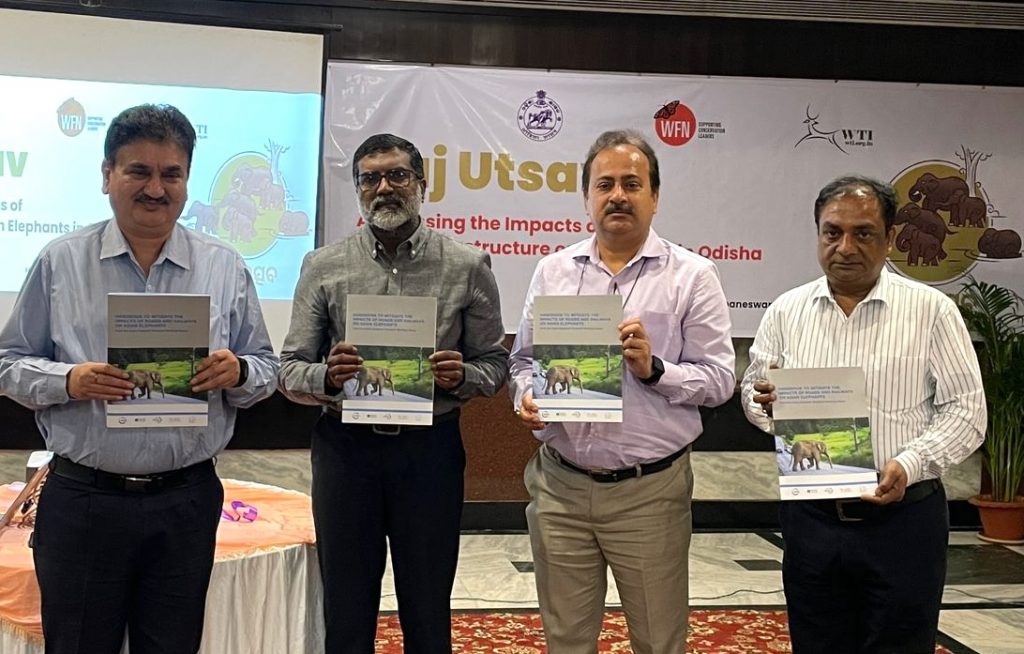Bhubaneswar: To develop strategies and mitigate the negative effects of linear infrastructure on elephants and wildlife, the state government with Wildlife Trust of India (WTI) hosted a consultative meeting, ‘Gaj Utsav’ with 20 representatives from the Odisha Forest Department (OFD), East Coast Railway (ECR), Electricity Board and Irrigation department here Friday. Gaj Utsav Odisha, a visionary campaign by WTI, which was launched by former Forest, Environment and Climate Change Department Minister Pradip Kumar Amat in October 2023.
The meeting was presided over by OFD APCCF wildlife Manoj Nair. The discussions primarily focused on strengthening the policy guidelines for avoiding, reducing and mitigating the adverse impacts of linear infrastructure such as power lines, canals, pipelines, and railways on wildlife. The meeting highlighted the ongoing conservation initiatives undertaken by the OFD and WTI’s interventions, for safeguarding elephant populations. Additionally, brainstorming sessions were conducted to explore innovative approaches to restore connectivity for wildlife across linear intrusions.
A Handbook on ‘Mitigate the Impacts of Roads and Railways on Asian Elephants’ by IUCN Asian Elephant Specialist Group (AsESG) was officially released by APCCF wildlife Manoj Nair, WTI chief of conservation Sandeep Tiwari, Odisha Power Transmission Corporation Limited director BB Mehta and Tata Power Central Odisha Distribution Limited chief of operations RK Rastogi.
On the occasion, Nair said, “On behalf of the State Wildlife Wing, I thank WTI for organising this important brainstorming session and hope that there will be more such during the year-long Gaj Utsav. I am sure the deliberations will help us frame more informed policies as well as strategies for mitigating impacts of linear infrastructure in the state.”
Launched in 2018, the Gaj Utsav campaign seeks to raise awareness about safeguarding the future of India’s national heritage animals, while also advocating for their essential right to passage, across different elephant ranges. Odisha is home to over 1900 elephants, spanning 3 elephant reserves and having 12 identified elephant corridors. While these majestic animals roam freely across the country’s vast landscapes, they face challenges in their right to move across their natural habitats.
One of the major concerns of linear intrusions is the alarming mortality rate of elephants, with approximately 45 to 50 elephants dying due to electrocution annually in the country and over 367 elephants falling victim due to train accidents since 1987 alone. Deliberations on finding solutions to mitigate elephant deaths from electrocution were central to the discussion.
ARINDAM GANGULY, OP
